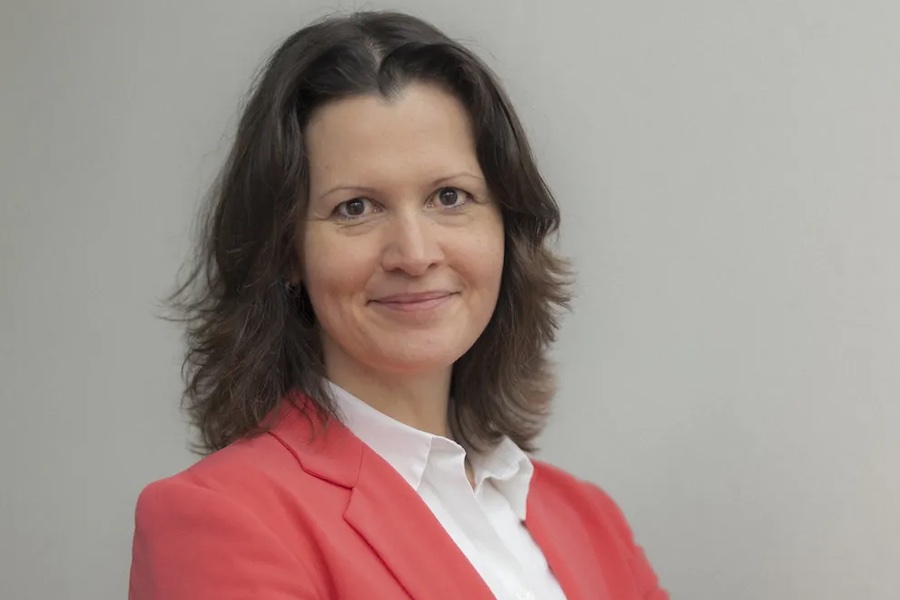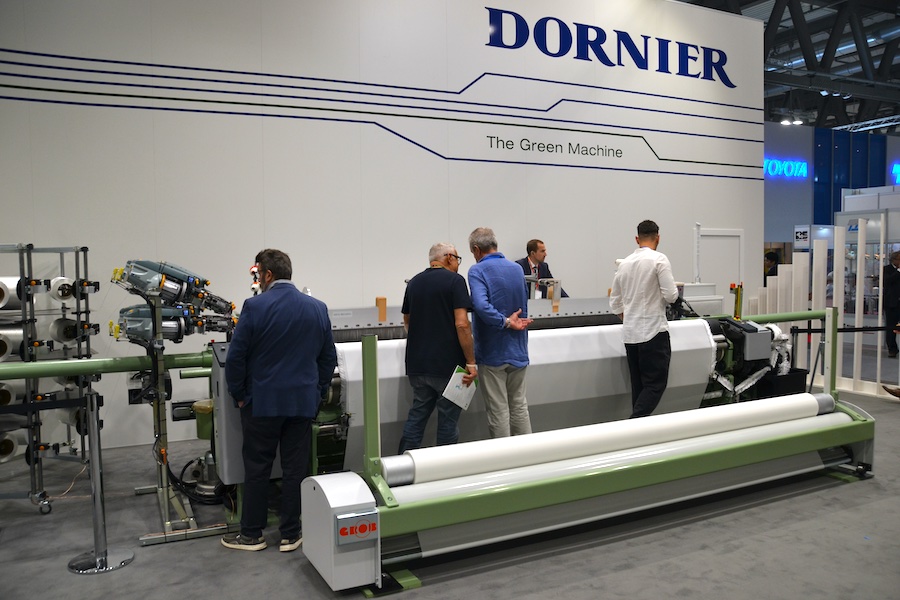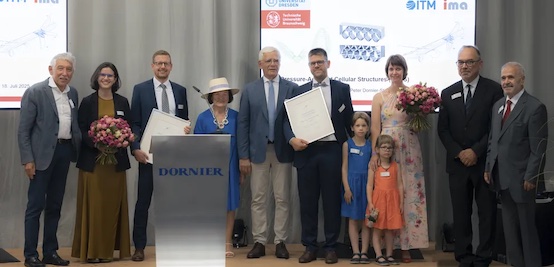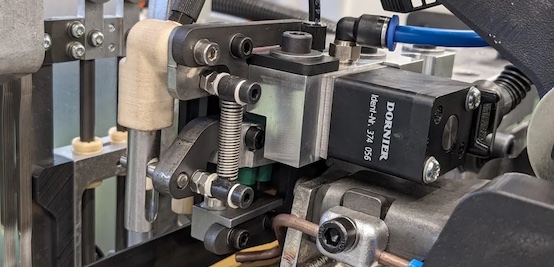#ITMA Asia + CITME 2020
Lindauer DORNIER presents new solutions for the production of filter fabrics and fiber composites at ITMA Asia
"We have succeeded in launching the most flexible weaving machine in the world," says Wolfgang Schöffl, head of the weaving machine product line. "We are talking about the P2 rapier weaving machine. It is the successor to the P1, which for years defined the international industry standard in the production of high-performance fabrics. DORNIER first presented the P2 in its standard version two years ago at the ITMA in Barcelona. Then came Corona. For a machine and plant manufacturer with an export quota of over 90 percent, this was initially a bitter blow," Schöffl recalls. But the concern that Corona would slow down the success of the new P2 was unfounded.
The world's largest filter manufacturers weave on DORNIER
Despite the global cutbacks caused by the pandemic, demand for the P2 rose steadily, for example among technical weavers in the filtration sector. Traditionally, some of the world's largest filter manufacturers rely on rapier and air-jet weaving machines from DORNIER. One of them is Jingjin Environmental Protection Inc., China's largest filter manufacturer, who, among other things, produces water filters on these machines. Recently, Jingjin has also started weaving on the P2, whose productivity has been further increased compared to its predecessor, the P1, thanks to improved shed geometry, frame rigidity and a maintenance-free drive.
Yet Schöffl believes that the great interest in the P2 is also due to the fact that it is available in three versions: with a maximum reed impact of 2.3 t, 3.7 t and 5.0 t. "We cover the entire spectrum of fabric production from very fine to very coarse fabrics." Because no matter whether water, air, blood or gases are to be filtered: The demand for high-quality filter fabrics is growing worldwide. Among other things, this is due to stricter environmental and sustainability requirements, which demand ever more comprehensive performance parameters. "In order to continuously improve the tightness and quality of filter fabrics, we are further developing our machines in close cooperation with our customers," says Schöffl.
Modern composite lightweight construction: PROTOS® and TRITOS®
The Composite Systems Division will also be present in Shanghai. Here, the newly developed production lines PROTOS® and TRITOS® will be the main focus of interest. Both are used to produce highly complex fiber structures and components for lightweight construction.
DORNIER customers, for instance, use PROTOS® (Polymer and Roving to Sheet) to produce modern high-performance materials based on unidirectional, thermoplastic continuous fiber reinforcements (UD tapes). They are intended to ensure low weight in vehicles, wind turbines or robots, thereby helping to improve their economic efficiency and sustainability.

TRITOS® (Textile Roving into Three-dimensionally Oriented Structure) is used, among other things, to create 3D fabrics for aircraft parts. Here, customers benefit from the decades of experience DORNIER has gained in the development of machines and systems with customers from the aerospace industry. "The demands on material quality and performance of fiber composite components are extremely high in this field," says Josef Klingele, head of the Composite Systems product line.
With both new developments, DORNIER once again demonstrates its technological leadership. Sectors such as mobility, energy and mechanical engineering are under enormous pressure to meet the increasing demands for environmental protection and resource efficiency. "With PROTOS® and TRITOS®, we optimize the manufacturing processes of lightweight construction, today’s megatrend”, says Klingele. In addition to existing customers, customers from "non-fibre" industries, including metal or wood, are now also working together with DORNIER at the technical centers in Lindau and Esseratsweiler on tomorrow’s composite applications.
Service 4.0: Digital solutions with added value
The new DORNIER customer portal myDoX® will also be a center of attention at ITMA Asia. Based on state-of-the-art database technology, it answers the question of how a traditional machine manufacturer handles the virtual data volume of its machines and systems. In addition to online parts order processing and as a substitute for thwarted customer visits and travels, Lindauer DORNIER has recently started offering virtual tours. Machines and lines can be viewed digitally according to customer-specific focal points in our Lindau and Esseratsweiler plants: Another essential factor for improving the ecological assessment, given the strong international orientation of German mechanical and plant engineering.













